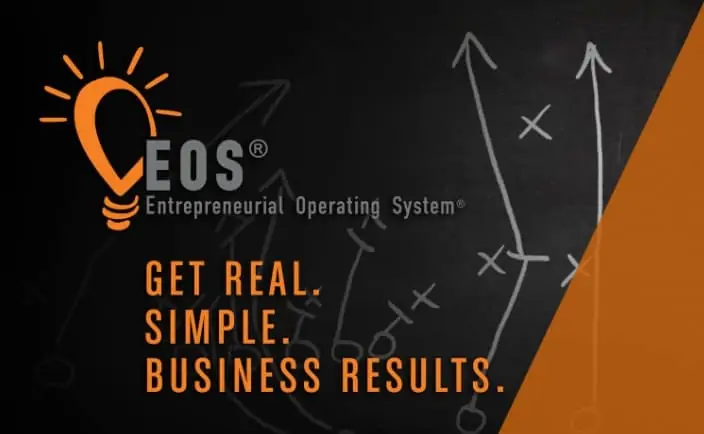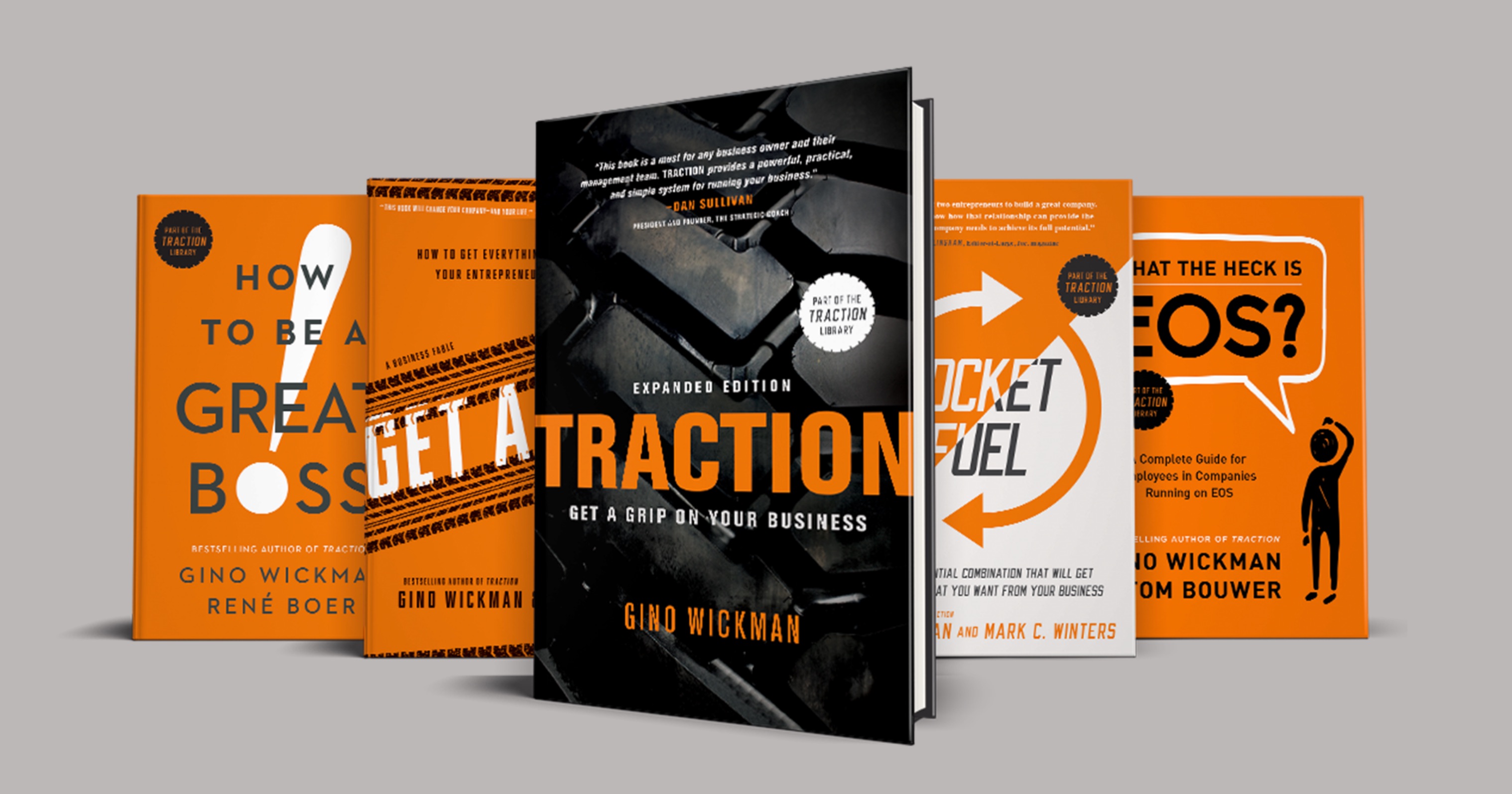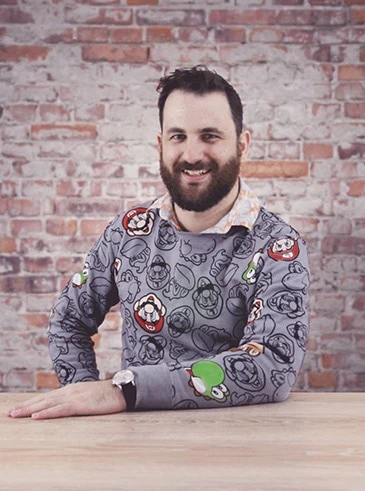This month, the ELT (or Executive Leadership Team) at Excite Media participated in our quarterly EOS® planning session with Implementer Ben Shapiro. If you have been around our business in the past 9 months, you would have heard a lot of EOS,® but for those with some curiosity to see what is working in the world of business planning and operational management, I thought it would be an ideal chance to interview one of our co-founders – Scott Maynard.
Table of Contents
ToggleThe TL;DR (too long, didn't read) 👇
- EOS® gave us the clarity we needed—now everyone knows where they fit and what they’re working towards.
- Our weekly chats (aka L10s) help us tackle the big stuff first and not sweat the small stuff.
- Those quarterly ‘rocks’ keep us moving forward—little by little, but in the right direction.
- Scott’s had to step up as our Integrator, which means more organising, more talking... and a lot of growth.
- We’re making EOS® our own—starting with the basics, staying curious and finding what works best for us.
Thanks to the entrepreneurial operating system (or EOS®), quite a lot has changed around here – and not just in the growing vocabulary of acronyms in use, such as L10, IDS, and RPRS. Our structure and planning system are very different today from what they were when we started this financial year. Here are the highlights of the conversation with Scott that can be explained in everyday terms.
So what exactly is EOS®?
In three words: Real. Simple. Results.
EOS®, the Entrepreneurial Operating System, is a complete set of simple concepts and practical tools that guide and support entrepreneurial organisations to get to where they want to be. Mastering this system helps leadership teams of growth-oriented companies like Excite Media to improve systematically and permanently.
While it is currently growing in awareness around the globe, it’s not a new thing. 18 years ago Gino Wickman created EOS® to help entrepreneurial leadership teams crystallise their vision, gain traction and become healthy, functional, and cohesive. The fact that it still working hard for businesses today just goes to show that it is based on fundamentals that really do work.
So, how did you learn about EOS? What started you on this journey?
Nathanael and I have been running Excite for 13 years now, and as the business has grown, we could see that we were straying from our original discipline. As business owners, we knew we had to step away from the day-to-day and become leaders who were working on the business.
I’d heard about EOS® in lots of podcasts and tried the audiobook a while ago – but at that time, I couldn’t get into it. I later picked up the audiobook again, and it must have been the right timing for it to ‘click’.
Why did you choose EOS®?
It was probably about a year ago when the lights came on for us. We weren’t looking for a whole new paradigm to run our business, but we were constantly looking at different business tools and techniques to improve the business and culture. We were taking ideas that made sense from many different places; however, it felt like we were assembling (often conflicting) ideas from a ‘buffet’ rather than adopting an approach that fit together cohesively.
We found EOS® was just good practice – there was nothing crazy in its advice and to us and it covered all the aspects that we were looking for. It just seemed that it could do no harm. It gives you a way of exploring the individual building blocks of business – like values, or accountabilities, and is presented in a really practical and logical manner.
We chose to use an EOS® Implementer. Why choose this approach?
While Nathanael and I had both read “Traction” and “Get a Grip”, our combined personalities tend to get “stuck in the weeds”. We know all about paralysis by analysis, so we wanted to work with someone who could help us focus and remind us about what was really important. We needed a coach to guide us through the process and support us through the highs and lows, and that’s exactly what an EOS® Implementer does.
We spoke to 3 local EOS® Implementers and decided on Ben Shapiro because we felt he had established a really great rapport with us and our management team in that first intro session.
So, looking back, what were the challenges in starting this journey?
To be honest, it was pretty confronting dealing with the hard questions – deciding what sort of business we wanted to be, what our vision and values are, and then putting it on paper. Once we wrote it down, we knew we had to deliver.
The other really challenging piece is the Accountability Chart and the can of worms that comes from the RPRS (Right Person Right Seat) discussion. The pieces of the puzzle can be the hardest to work through, especially for a team of people who are so close personally and professionally.
However, EOS® provides a good framework for working through this, and now with the Accountability Chart in place – everyone knows what is expected of them.
Implementing EOS® is obviously a journey. As a business owner, what are the biggest changes you have seen so far?
We now have more focus and discipline to work on the things that are important. And to not get distracted by shiny new things or looming dilemmas. There is an “issues list” at a leadership team level, and for each department, which helps us get the “issues” down on paper and out of our heads. Week to week, each team solves only the most important issues on that list. If we don’t get to all of the items, that’s fine (in fact, it’s good!), as long as we’re dealing with the most important issues each week.
The issues that remain unsolved can simply remain on the list – that’s fine, as we’ve made a conscious decision that they aren’t as important. In fact, it’s quite liberating realising that you can simply leave issues unsolved in order to be able to focus on the really important things.
To progress the business forward towards our vision, each quarter we set ‘rocks’ (i.e. 90-day projects) at both a company level and a department level. We don’t always get everything done in the 90 days – last quarter, we completed 14/21 projects. However, 14 more initiatives (across production, service delivery, sales and marketing, and finance) would not have happened without EOS®. Having the whole company pointing in the same direction towards the vision and making measurable progress towards it each quarter is a hugely positive change.
What has been the hardest part for you personally?
As the ‘Integrater’ in our EOS® program, I’m responsible for the discipline of making the process happen. Running the weekly L10 management meetings means I need to be organised and have made the time during the week to talk to each team member to see how they are going and how I can help. These weekly meetings allow us time to “IDS” – one of the key concepts of EOS®, where we Identify issues that have come up, Discuss possible impacts and alternate responses and come up with Solutions. My role is to push for open and honest communication and ensure everyone’s views are considered.
I’m also the one that needs to bring the wider team together to progress towards our vision, and to provide updates on our progress towards our goals. Actually being a visible leader and communicating with passion and commitment is definitely not in my comfort zone, but the opportunity to do this is really helping me to grow as a business owner.
From where I sit as Head of Marketing, EOS® has definitely helped direct attention to some of the areas we used to sweep under the rug.
Just to wrap up, Scott, what tips would you give to someone looking at EOS® for their business?
EOS® is a calm and steady approach to keeping a business focused on the stuff that matters. Here are my top tips if you want to follow us on this journey.
#1 Don’t do anything that feels unnatural. While you do need to adopt an element of “blind faith” to begin with, EOS® will only deliver success if you use it authentically and in a way that works for your unique culture. I’d encourage people to start by doing things the “EOS® Way”, but also not to be afraid to put their own spin on it once they understand the concepts.
#2 Always keep an open mind – and remember good ideas can come from anywhere.
#3 Be really diligent about the Issues List – make sure you’re solving the most important items first, and be “okay” with the fact that unimportant issues may never be solved. Just think about all the important issues you will solve while ignoring the unimportant ones!
#4 Be patient. Don’t expect to implement the whole program at once… It’s a journey.
#5 And finally, don’t be too hard on yourself. Minor steady improvements will deliver those 3-year goals if you stay focused.
Want to learn more about EOS® … here are the books our team have read/listened to:
Traction: Get a Grip on Your Business
by Gino Wickman
Inside Traction, you’ll learn the secrets of strengthening the Six Key Components™ of your business. You’ll discover simple yet powerful ways to run your company that will give you and your leadership team more focus, more growth, and more enjoyment. Based on years of real-world implementation in thousands of companies, the Entrepreneurial Operating System is a practical method for achieving the business success you have always envisioned.
Get a Grip: An Entrepreneurial Fable
by Gino Wickman & Mike Paton
Filled with familiar situations, real-world characters and detailed, fully-applied tools, Get A Grip vividly illustrates the right way to implement EOS® in an enjoyable fable format, making it easy for you to translate this story into results for your own business.
What the Heck is EOS?
by Gino Wickman & Tom Bouwer
Designed to engage employees in the EOS process and tools, What the Heck is EOS? uses simple, straightforward language and provides questions about each tool that managers and employees can use in creating more ownership and buy-in at the staff level. After reading this book, employees will not only have a better understanding of EOS, but they will be more engaged, taking an active role in helping achieve their company’s vision.






